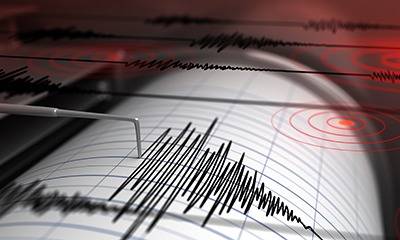The 4.6 magnitude earthquake felt in Central Alberta Monday morning is the largest the area has ever experienced, according to seismologists.
Taimi Mulder, an earthquake seismologists with the Geological Survey of Canada, Natural Resources Canada, says the quake was slightly larger than the area has seen.
Normally earthquakes that sit on the higher end of the scale for Central Alberta are around 3.8-4 on the Richter scale.
“We are still classifying this as a light earthquake, but it does seem to be the largest to hit the area,” said Mulder.
READ MORE: Earthquake in Sylvan Lake area leads to blackout
A light earthquake is usually classified in the Magnitude 4 range. In this magnitude, Mulder says there will be shaking and often a loud boom.
However, the event normally doesn’t last long.
“At this range it is usually over pretty quickly, and most people will experience a shock, and are often a bit frightened.”
Normally with a light earthquake, damage and injuries do not occur.
Earthquakes at a Magnitude 3 are considered a minor event, while Magnitude 5 quakes are referred to as a moderate event.
Mulder said the event is still being investigated, but it does not appear to be caused by fracking in the area.
The cause is believed to be from tectonic movement along the Rocky Mountains.
While Central Alberta is a distance away from a fault line, quakes still occur every few years.
“It is very unusual, but not unheard of to have an earthquake in the area,” Mulder said adding, “Normally we see more activity in larger centres such as Calgary, Edmonton or Banff.”
Mulder says the Sylvan Lake area is within those areas that see earthquake more frequently. She said the stress from the fault lines can often be felts a ways away.
“The stress still propagates out.”
The last quake felt in Central Alberta was on Aug. 9, 2014 and was a 3.8 magnitude quake.
The one experienced in 2014 was centralized just west of the March 4 quake which is believed to have been located just south of Sylvan Lake. The area tends to experience an earthquake every three to five years, according to Mulder.
Mulder says another quake is not expected to occur following the Monday morning shock.
“We are still looking into this, but it doesn’t look like there is a danger of any more earthquakes happening after this morning.”
The quake was relatively centralized. Reports say the shock could be felt in Red Deer, Lacombe, Blackfalds, Eckville, Penhold and as far north as Gull Lake.
Follow Megan Roth on Twitter
@MeganSLN
megan.roth@sylvanlakenews.com
Like us on Facebook and follow us on Twitter



